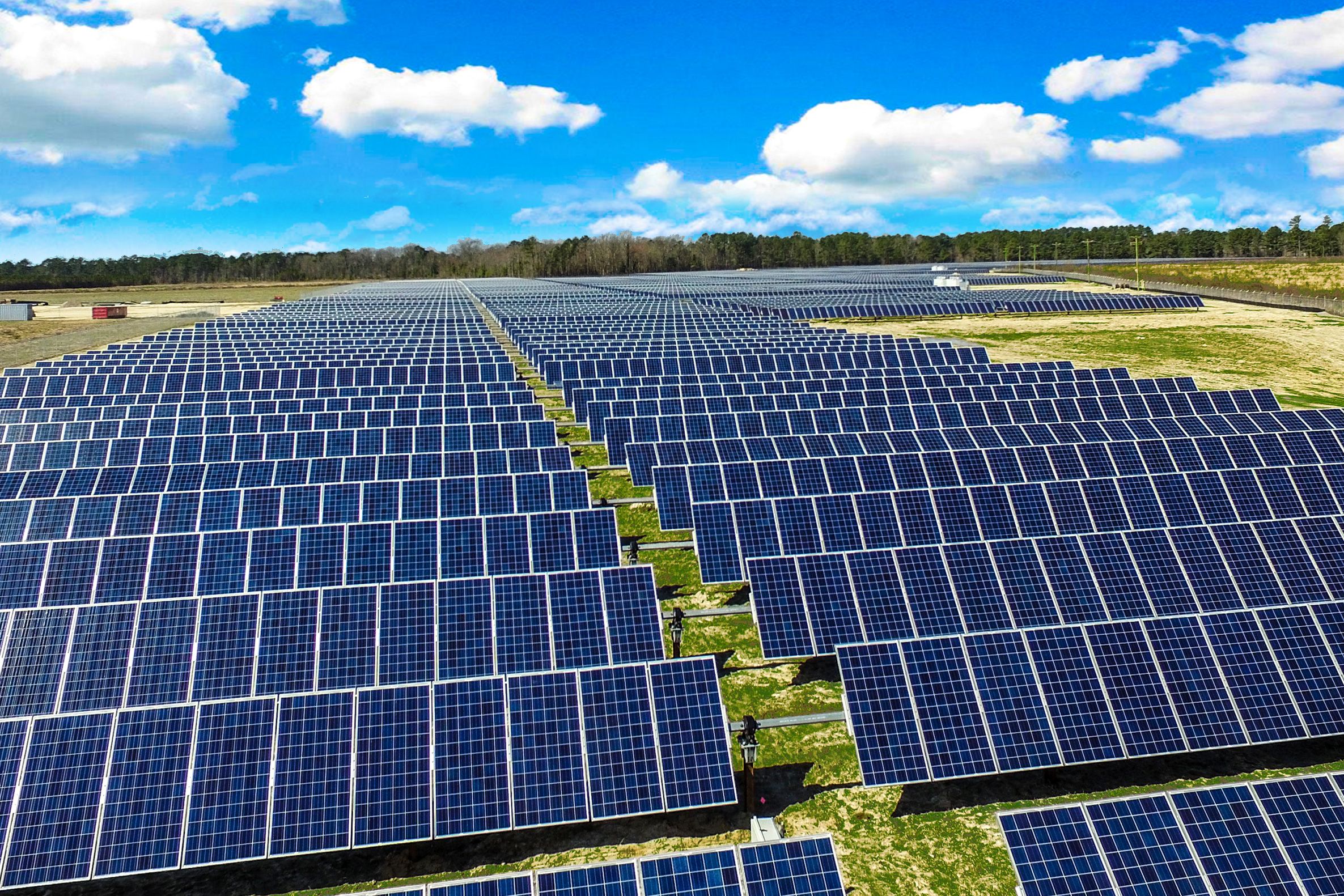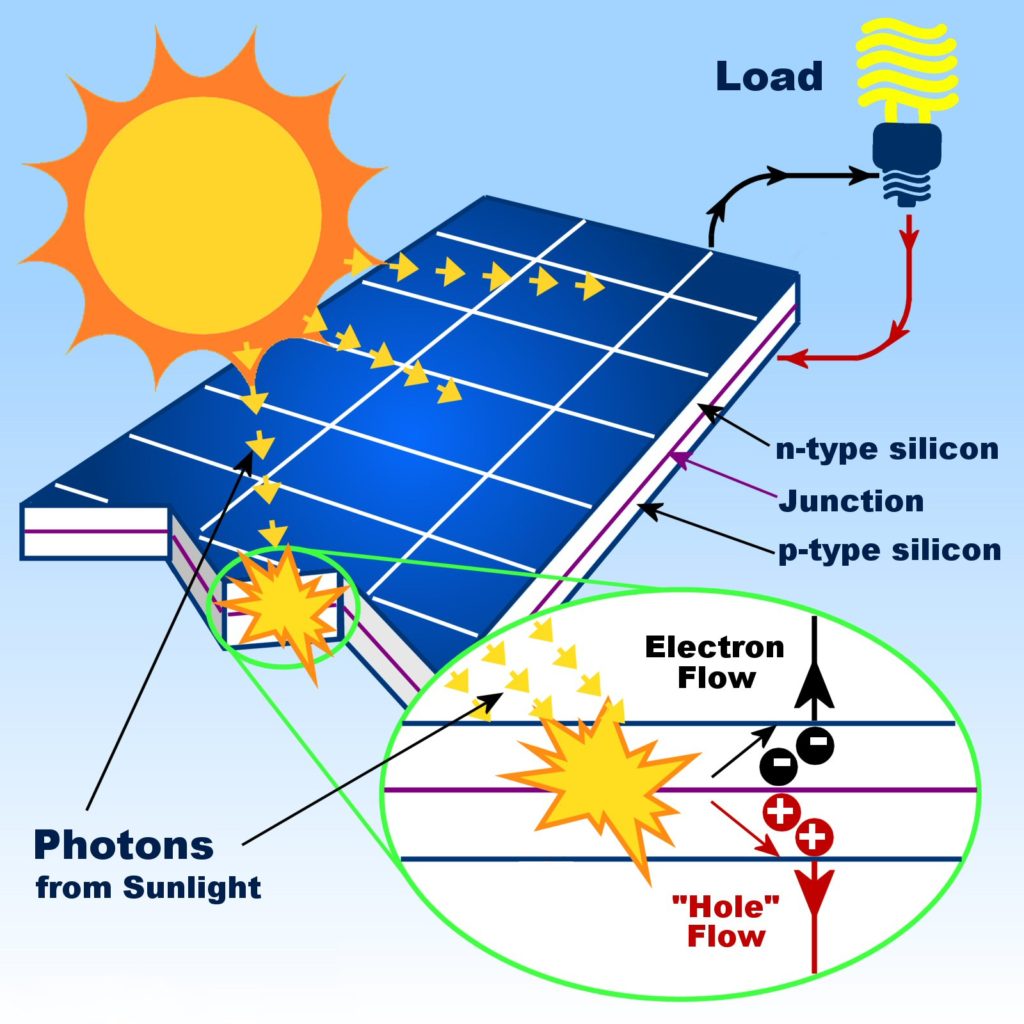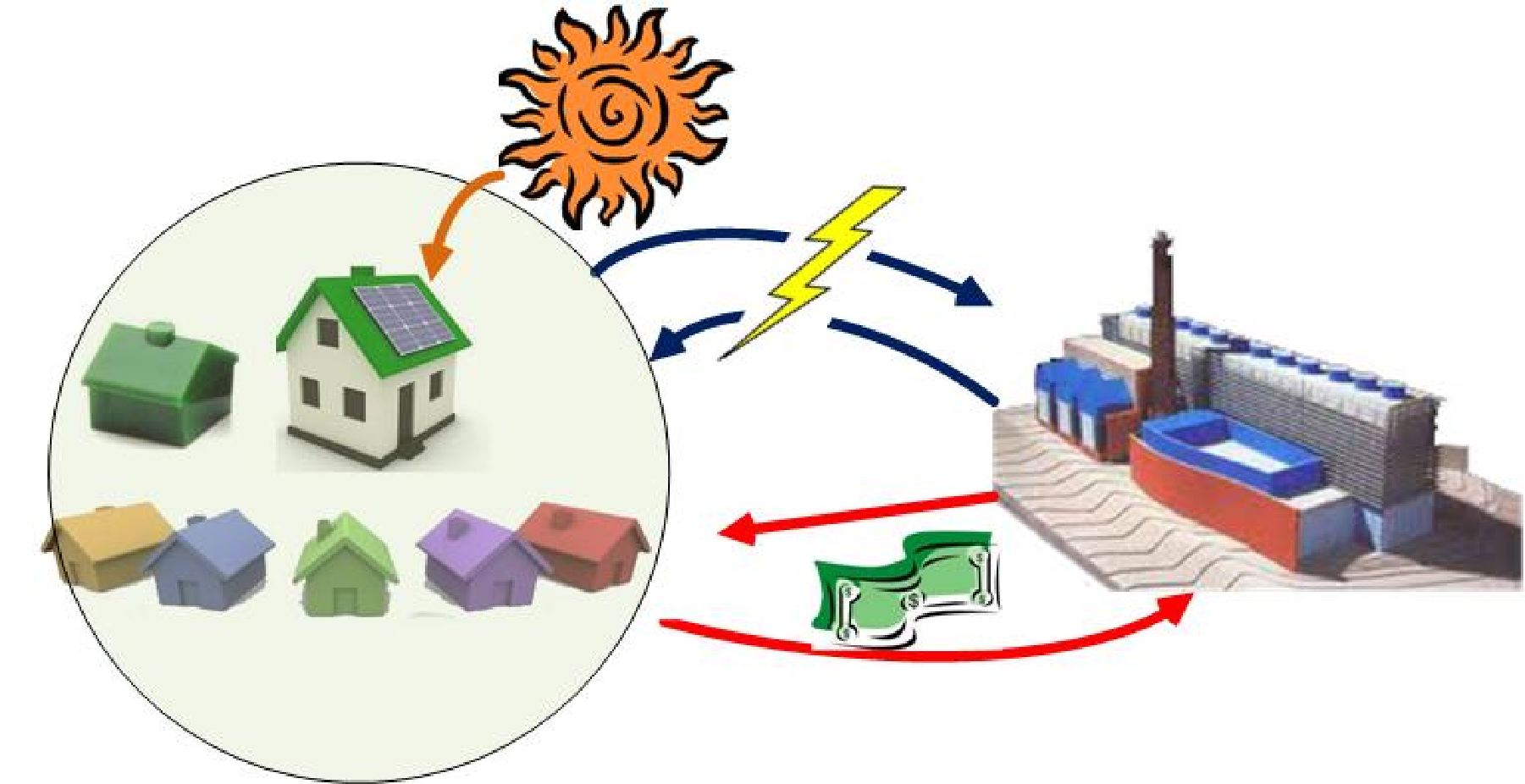
MIT to neutralize 17 percent of carbon emissions through purchase of solar energy MIT News
PVWatts Solar PV Modeling Tool • Estimates the energy production and cost of energy of grid- connected photovoltaic (PV) energy systems throughout the world • It allows homeowners, small building owners, installers and manufacturers to easily develop estimates of the performance of potential PV installations • Free web-based tool

Many Tips And Tricks To Help With DIY Solar Energy Collection Click on the image link for
Solar energy is a form of renewable energy, in which sunlight is turned into electricity, heat, or other forms of energy we can use.It is a "carbon-free" energy source that, once built, produces none of the greenhouse gas emissions that are driving climate change. Solar is the fastest-growing energy source in the world, adding 270 terawatt-hours of new electricity generation in 2022 1.

Solar Energy Industry Looking Bright for Veterans G.I. Jobs
Solar technologies convert sunlight into electrical energy either through photovoltaic (PV) panels or through mirrors that concentrate solar radiation. This energy can be used to generate electricity or be stored in batteries or thermal storage. Below, you can find resources and information on the basics of solar radiation, photovoltaic and.

4 Proposed model of solar power plant Download Scientific Diagram
PVWatts Model. The PVWatts model forms the core of pvlib, and is used for module (DC) and inverter (AC) modeling. An NREL study comparing the available module models found that the annual energy output of the PVWatts model was in close agreement with other models, such as the Sandia and the California Energy Commission (CEC) Module models (study referenced a hypothetical 200kW PV system with.

Solar Energy Financial Model Template eFinancialModels Solar energy diy, Cash flow statement
We use a state-of-the-art, fully-coupled Earth system model (EC-Earth) and consider three solar energy production scenarios in North Africa covering 5%, 20% and 50% of that region (hereafter S05.

Future energy solar trees 3D model TurboSquid 1534496
Solar photovoltaic (PV) deployment relies on suitable locations with high solar energy potential. In the urban context, building rooftops are often considered one of the most available locations for solar PV installation. This work demonstrates a new geospatial-method for spatiotemporal modeling and mapping solar energy potential based on a.

solar power irrigation system project model science project diy howtofunda YouTube
Modeling and Analysis. DOE modeling and analysis activities focus on reducing uncertainties and improving transparency in photovoltaics (PV) and concentrating solar power (CSP) performance modeling. The overall goal of this effort is to develop improved modeling data and algorithms to accurately predict module or system performance and energy.

Solar Overview Ruaha Energy
The U.S. Department of Energy (DOE) supported recent development of the Solar Advisor Model (SAM). SAM provides three options for mod ule performance models: the Sandia Performance Model proposed by King et al. (2004), the five parameter model popularized by Desoto et al. (2006) and a single-point efficiency model.

Watering using Solar Power easy school project for competition ( Working Model) YouTube
Photovoltaic (PV) solar energy systems are expected to operate for at least 20 to 30 years. The U.S. Department of Energy (DOE) Solar Energy Technologies Office (SETO) supports research and development (R&D) to extend the useful PV system life to 50 years. How well a system performs during its lifespan directly affects project cash flows, which largely determine the value of those systems.

Solar Energy Production By State WorldAtlas
Metrics. The Shockley-Queisser model is a landmark in photovoltaic device analysis by defining an ideal situation as reference for actual solar cells. However, the model and its implications are.

Solar Energy Model For Class 6 LED Pedia
Researchers create worldwide solar energy model. For any future sustainable energy system, it is crucial to know the performance of photovoltaic (solar cell) systems at local, regional and global.

solar energy model making using cardboard and paper science project howtofunda still model
This book opens with a brief introduction to renewable energy and the advantages of solar energy systems, an overview of concentrated solar power (CSP) system technologies and modeling, and the application of artificial neural network (ANN) technologies in various solar field systems.

solar irrigation model explanation in english for school science exhibition howtofunda YouTube
Solar is a significant renewable energy source. Solar energy can provide for the world's energy needs while minimizing global warming from traditional sources. Forecasting the output of renewable energy has a considerable impact on decisions about the operation and management of power systems. It is crucial to accurately forecast the output of renewable energy sources in order to assure grid.

Solar Energy Utilization for Electric Generation — MATLAB Number ONE
According to the Solar Energy Industries Association, the installed capacity of solar energy in the United States at the end of 2021 exceeded 100 gigawatts direct current (GWdc), distributed across nearly 3 million systems, while. The industry has created modeling tools for use by solar energy practitioners over the last two decades. While.

Solar Energy Models for Science Projects 4 in 1 Solar Energy v1.0 Model for Science Project
By observing above investigations, there is vast scope in modeling simulation and analysis of photovoltaic module. In view of the never-ending impact of solar energy to the social development of any country, it is truly saying that solar power is a leading prospective solution for power shortage ( Sindhu et al., 2016).

Solar Gardens Community Power!
Solar Measurement and Modeling. NREL supports grid integration studies, industry, government, and academia by disseminating solar resource measurements, models, and best practices. These resources are used to design and plan renewable energy systems. Since 1981, NREL's researchers have continuously gathered basic solar radiation information.